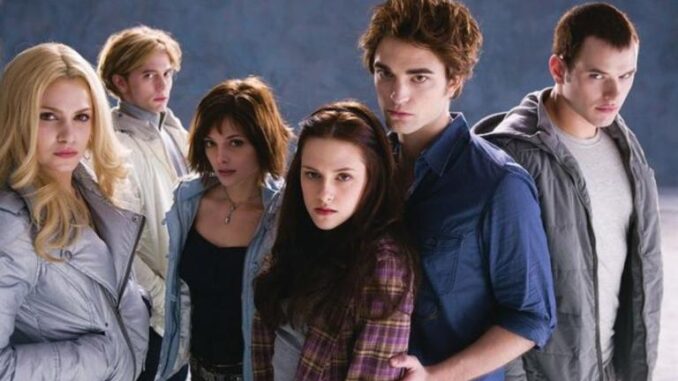
The year 2008 dawned with a particular kind of cinematic enchantment, a celestial phenomenon that would grip a generation. A vampire saga, born from the ink of Stephenie Meyer, descended upon the silver screen, casting a long, glittering shadow over pop culture. At its heart were three young actors, thrust into a supernova of fame as Bella, Edward, and Jacob – Kristen Stewart, Robert Pattinson, and Taylor Lautner. For years, their faces were synonymous with brooding romance, forbidden desire, and loyal devotion. But as the final credits rolled on Breaking Dawn – Part 2, the question lingered: Where do stars go when their constellation disperses? Where are the twilight stars now, inside the real lives of the figures we once knew only as human, vampire, and werewolf?
For Kristen Stewart, the embodiment of the clumsy, relatable, yet fiercely resolute Bella Swan, the aftermath of Twilight was less about basking in the glow and more about a deliberate, almost defiant, shedding of skin. Bella’s constant emotional turmoil and internal monologue were mirrored in Stewart’s own public persona at the time – often perceived as awkward, uncomfortable in the spotlight, and intensely private. Post-Bella, Stewart embarked on an artistic pilgrimage, meticulously peeling away layers of commercial artifice. She gravitated towards independent cinema, collaborating with auteurs like Olivier Assayas (Clouds of Sils Maria, Personal Shopper) and Kelly Reichardt (Certain Women). Her performances grew more nuanced, raw, and unvarnished, revealing a profound depth far removed from the wide-eyed wonder of a girl falling for a vampire. Her turn as Princess Diana in Spencer was a critical triumph, a visceral portrayal that solidified her reputation as a serious, compelling actress. Kristen Stewart, the person, wrestled control from Bella Swan, the character, and in doing so, forged a new, more authentic artistic identity, shining with an edgier, more unpredictable light in the indie galaxy.
Robert Pattinson, the dazzling, perpetually conflicted Edward Cullen, faced a similar, yet distinct, challenge. His intense gaze and resplendent pallor had captivated millions, making him an overnight heartthrob. The specter of "the sparkly vampire" loomed large. Like Stewart, Pattinson consciously steered his career into the avant-garde, choosing roles that were often challenging, grotesque, or deeply unsettling, far removed from the romantic hero archetype. He immersed himself in the grimy realism of films like The Rover, the frenetic anxiety of Good Time, and the existential dread of The Lighthouse. These weren't roles designed for mass appeal; they were an artistic cleansing, a declaration that his talent transcended the teen idol mold. Then came the ultimate pivot: The Batman. His casting as the Caped Crusader, initially met with skepticism by some, proved to be a masterful move. It was a return to blockbuster cinema, but on his own terms – a darker, grittier, more psychologically complex iteration of the hero. Robert Pattinson didn't merely escape the shadow of Edward; he reshaped it, proving himself a versatile actor capable of both arthouse intensity and blockbuster gravitas, a star whose light adapted to any cinematic darkness.
Taylor Lautner, the earnest, loyal, and perpetually shirtless Jacob Black, navigated a different post-Twilight trajectory. His character, the dependable protector with the unwavering heart, resonated deeply with many fans. Yet, of the three leads, Lautner seemed to find it most challenging to translate his Twilight fame into a sustained, varied career. While he attempted action films like Tracers and comedic roles in television, the indelible image of Jacob proved a harder one to shed in the public consciousness. For a time, he stepped back from the intense glare of Hollywood, embracing a more private existence. Unlike Stewart and Pattinson, who leaned into challenging artistic reinvention, Lautner seemed to find peace in a different kind of "real life," one less dominated by the relentless pursuit of the next major role. In recent years, he has re-engaged with his Twilight legacy with humor and grace, acknowledging its profound impact on his life while showcasing a newfound contentment beyond the constant demands of the spotlight. His journey is perhaps the most human of the three – a testament to the fact that not every star needs to burn brighter; some find their truest light in a quieter orbit.
The indelible imprint of Bella, Edward, and Jacob remains, a testament to the cultural behemoth that was Twilight. Yet, the actors who brought them to life are no longer defined solely by those roles. Kristen Stewart, Robert Pattinson, and Taylor Lautner have, in their own unique ways, wrestled with the gravitational pull of their past fame. They are no longer characters but complex individuals, architects of their own universes. They are the twilight stars, yes, but not of a fading saga. They are stars in their own right, continuing to evolve, to shine, and to remind us that even after the most spectacular cinematic sunset, the real lives of those who lit up the screen continue to move, to grow, and to illuminate new paths. Their journeys illustrate the arduous, yet ultimately liberating, process of defining oneself beyond the roles that once defined them.
